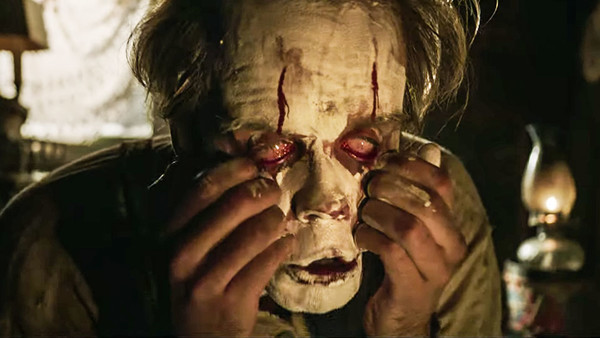The Disturbing Truth Behind Pennywise

Going back into the film again, that disconnect between parents and children is an important part of what makes Pennywise specifically so powerful and so terrifying. Because Stephen King doesn't just base his monster's fear factor on something as innate as "clowns are creepy," regardless of him explaining Pennywise that way repeatedly.
Were he just a conventional "evil clown" archetype, Pennywise would kill any old kids. He would terrorise them to make them taste better - more on that soon - and he'd have his fill and move on. But he's not as blunt and unimaginative as that. Pennywise's targets - the Losers' Club - all have something else that serves not only his desires for tastier prey but also King's own ideas of fear and vulnerability.
Remember the idea of a clown inherently tying into how kids would perceive their parents and how protected they'd feel? That specific vulnerability - one bred in isolation and abuse - is very much a mirror of that feeling and a means to amplify the terror.
For King, Pennywise is irresistibly drawn to the Losers' Club because they're already broken. They're abused or bullied or in some other way shaped by trauma. They've been through something that caused a premature loss of innocence and installed something in their minds that would help It get its claws into them. It identified a doorway in them created by abuse and trauma and alienation - all of the things that make them the Losers' Club (and which are worn as perverse badges of honour) - and pushed Pennywise through it.
Pennywise thrives on control. His powers amount to manipulation, which relies on his ability to get his victims to dance to his tune. Control too is at the heart of all of the abuse and bullying that the Loser Club endure, whether from their families or from Henry Bowers. And when It takes control - just as when the abusers did - it takes it away from the victims and puts them at the mercy of an unpredictable tormenter. When that tormenter doubles down on the unpredictability by being something as weird and outrageous as a clown, all bets are off.
That's why the clown comes back to each of the characters even as It appears in different forms throughout the story to them. It recognises that their shared experiences spell out a similar vulnerability to the one that makes clowns inherently scary, so it appears in the form that sparks those feelings.
Fundamentally, It's goal is to make its victims as scared as possible. It's said that fear makes human flesh taste better - like a seasoning, effectively - so its manifesto is one aimed at maximum impact. It knows that each of the Losers Club has a reason to feel unprotected or abandoned, so it chiefly appears in a form that provocatively reminds them of that.
It's not even likely that Pennywise would appear to other children as frequently as he does to the Losers' Club, regardless of the suggestion that the clown is It's favourite form. Because Pennywise is a statement aimed at reminding those kids that fundamentally, they are alone.
In the end, that's also the key to their defeat of him, because the kids have been through enough - whether because of abuse or bullying or some other trauma - to build up their defences enough to fight back. It's weakness is in its assumption that all humans are weak and can be manipulated at will and It's biggest mistake is going after more vulnerable, victimised children who have been thrust together because of a shared spirit bred in their difficult pasts.
They do the unthinkable and resist and they fight back against It's assumption that they will never be able to, which is exactly why they win. At least why they win the first battle.